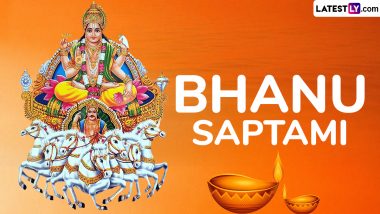Navroz, also known as Navroze, Nowruz, or Parsi New Year, holds a special place in the hearts of the Parsi community. The Parsi New Year symbolises new beginnings, hope, and optimism for the future. For Parsis, it's not just about marking a new year but also about reflecting on the past and setting goals for the year ahead. While they follow many customs and traditions, one fascinating aspect of Parsi tradition is their practice of celebrating the New Year twice every year. This means that in 2024, Parsi New Year will be celebrated on both March 20 and August 15. But how can a calendar have two New Years? Scroll down to explore and discover the significance behind this unique tradition. Parsi New Year Images & HD Wallpapers for Free Download Online: Wish Navroz Mubarak to Your Friends and Family by Sharing Lovely Greetings, Quotes and SMS.
Despite being a small community in India, Parsis have made remarkable contributions to various fields like business, cinema, the arts, sciences, and the military. This community traces its roots back to the Iranian prophet Zoroaster and has a rich history that dates back thousands of years. Parsis settled in India during and after the Arab conquest of the Persian Empire to escape persecution and preserve their Zoroastrian faith. Today, most Parsis reside in Mumbai and Gujarat, with smaller communities in Bengaluru (India) and Karachi (Pakistan).
Parsi New Year 2024 Dates
The first Nowruz, or Parsi New Year, will be celebrated on March 20, 2024. The second Navroz, or Parsi New Year, will be celebrated on August 15, 2024.
Why Is the Parsi New Year Celebrated Twice in a Year?
Parsis celebrate two New Year festivals because of their historical journey and cultural connections with different societies. The first Parsi New Year is celebrated during the spring equinox, usually in March. While Navroz is celebrated around the world in March, in India it is celebrated about 200 days later, in August. This is because Parsis in India follow the Shahenshahi calendar, which doesn't include leap years. Therefore, in India, people observe two New Years. One according to the Iranian calendar and the other following the Shahenshahi calendar. This double celebration is a unique tradition cherished by the Parsi community in India. In India, Navroz, Nowruz, or Parsi New Year is also known as Jamshed-i-Navroz, named after the Persian King, Jamshed. He's famous for creating the Shahenshahi calendar.
History of Parsi New Year
According to Parsi tradition, King Jamshed, from the Pishdadian dynasty, ruled the ancient Persian empire for 700 years. Back then, the Persian Empire was much larger than modern-day Iran, spanning across vast parts of West Asia. King Jamshed, known for his wisdom and compassion, was blessed by the Parsi god, Ahura Mazda and guided by Sarosh Yazad, an angel of God. During his reign, Sarosh Yazad warned Jamshed about a deadly snowstorm approaching, set to cover the world in ice. He advised Jamshed to move his people, along with pairs of every plant and animal species, to higher ground. As the storm raged on, the people waited anxiously. Then, on the day of the Vernal Equinox, the snowstorm finally passed, and spring ushered in a time of prosperity once again. With the arrival of spring, Jamshed ascended to a new throne, marking the beginning of better days. Under his rule, evil was removed, kindness flourished, and diseases vanished. The day Jamshed was crowned, known as the Vernal Equinox Day, became a joyous occasion for Parsis, symbolising the start of a new era. This day came to be celebrated as Nowruz, which means 'new day', or Jamshedi Navroz. For centuries, Navroz has been celebrated not only in Iran but also in neighbouring countries like Afghanistan, Armenia, Tajikistan, Georgia, Azerbaijan, and other countries that were likely influenced in some way by the ancient Persian Empire. Navroz Mubarak Images & Parsi New Year HD Wallpapers for Free Download Online: Wish Happy Parsi New Year With WhatsApp Messages, Greetings and Quotes.
The Parsi New Year or Nowruz celebrations focus on what we call the four fs—fire, fragrance, food, and friendship. During this time, people enjoy delicious Parsi dishes, ask for forgiveness for any mistakes made in the past year, cleanse their minds, and start the New Year with love and peace.
(The above story first appeared on LatestLY on Mar 15, 2024 01:53 PM IST. For more news and updates on politics, world, sports, entertainment and lifestyle, log on to our website latestly.com).













 Quickly
Quickly





















